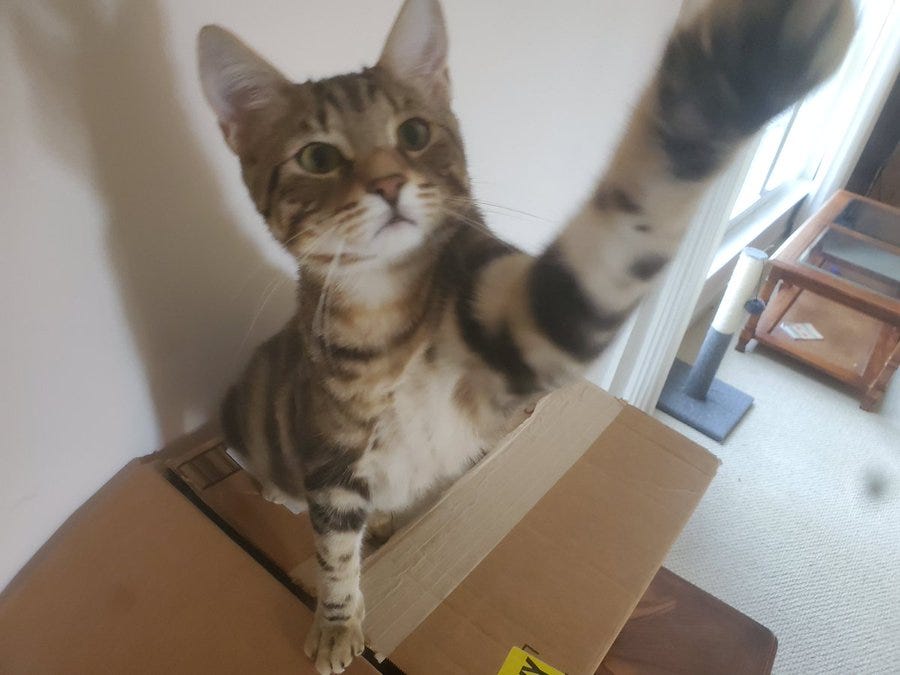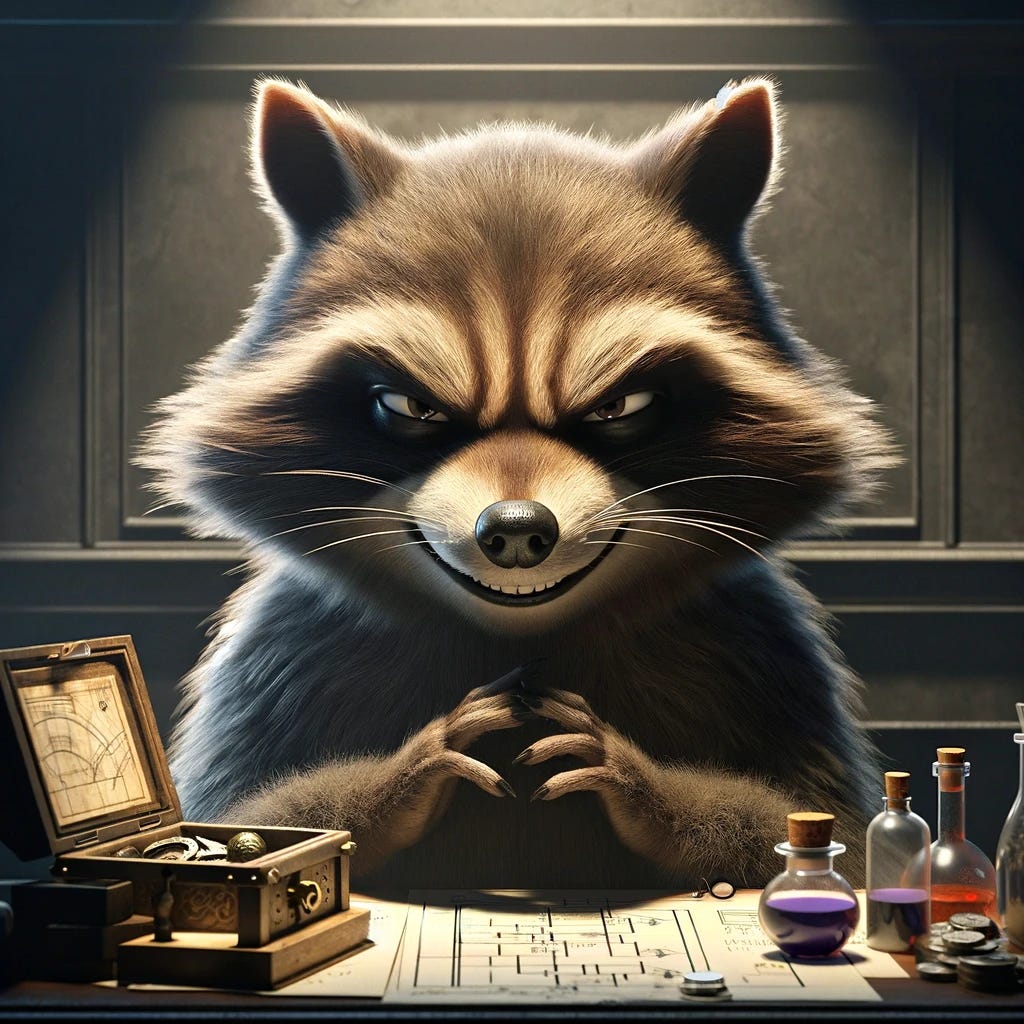
Now that the computer science discipline of machine learning and what we call “artificial intelligence” has been able to take advantage of FPU hardware tech created for video games, and produce, at last, useful applications for the non-specialist, we’re forced to dive into a question we have been putting off what a while.
What is this “intelligence” of which we speak so freely?
Oh, we all have an intuitive sense that the word represents something. Certainly some people think better than others, and we even have some tests which manage to sort of measure by how much.
But we are still stuck in a certain fuzzy gray area where intelligence is a bit like art, or pornography… we can’t tell you what it is, but we know it when we see it.
And if we are going to create intelligence, with all the philosophical quandaries that opens up, we’d better go in with some sort of notion what “intelligence” is, other than a one-word synonym for “I don’t know how you did that.”
So, I had a stab at it. After all, as a former AI programmer, and current professional science fiction author, it’s kinda my job to speculate about technology and stuff.
So here’s what I came up with for “What is intelligence, and how does it work?”
Intelligence is the ability to tell stories.
Yes, yes, I hear you chortling in the back, there.
Ask a science fiction writer what intelligence is, and he defines it as the ability to do exactly what he does for a living.
In his totally disinterested, rational, and objective opinion.
Laugh it up.
All finished?
Okay, now we can examine the possibility that I mean something more by this statement than simply “Me very smart man. Subscribe to smart man substack!”
What I really mean hinges on how I am defining a “story” here.
I don't mean a novel.
Not even a splendid debut novel that sold over 10,000 copies in the author’s first year out of the gate, is rated 4.7/5 on Amazon, and was a finalist for the Dragon Award and the Prometheus Award. (Just sayin' ...)
A novel is only one type of story. The "story" that I am talking about is a much broader category, and it is that type of story that forms the basis for thought. It is our superior ability to tell that kind of story that separates us from the animals.
What kind of story?
Well, here's an example. This is my 9-month-old kitten, "Atlas, the Opener of The Way."
And why, exactly have I imbued an ordinary housecat, not yet full grown, with so grandiose a title?
Aside from the obvious humor value, it's because he has figured out how to open doors. Not just bumping partially open ones with his nose, here. We're talking full and deliberate operation of door handles.
Obviously, an intelligent cat. But what does that word "intelligent" mean?
What, exactly, did Atlas have to do in his walnut-sized brain in order to learn this trick?
Well, he had to watch me, a human, operate a door handle with my hand, see me then push the door while holding the handle down, then see the door open.
Then he had to construct, in his walnut-sized brain, a narrative whereby the first two events, in combination and only in combination, caused the third.
That narrative, my friends, is a story.
But Atlas's work was not done. He then had to tell himself another story.
He had to create an imaginary Atlas, in his head, and visualize it doing what I, a human and a totally different type of creature, had done.
He had to manipulate this imaginary Atlas, make him snag an imaginary door handle with his paw, and hold it down while pushing an imaginary door, and then visualize the door opening as a result.
All so that his imaginary Atlas can walk through, and gain his desired reward... the ability to jump onto my bed at 4AM in the morning, then nuzzle my face and purr loudly until I awaken to give him chin scratches.
(Have I mentioned that one of the main perks of being a professional writer is the freedom to take naps in the afternoon if I am feeling sleep-deprived?)
All of this is another story, a second story, and in fact, it is the more difficult kind of story, the more intelligent story, because it is counterfactual.
Atlas didn't just have to fit events that he saw into a story. He had to visualize new events, which had not, in fact, happened.
The ability to think and plan is the ability to write fiction.
So now you understand the third story.
The third story here is the story I have just told you about Atlas, which allows you to understand what I believe intelligence is.
If you are in possession of some intelligence, you will now be able to tell yourself stories of how intelligence works.
Of how human beings are able observe, learn, plan, execute, and conquer the world, and build civilization, by this repeated process of seeing factuals, fitting them into stories, then making plans by telling themselves counterfactual stories.
First analysis - seeing the truth and making a story.
Then synthesis - making up a story, a fictional story, a lie which can become true when we execute it as a plan.
The development of language vastly accelerated this process by allowing humans to share those stories. If you look carefully at every "intelligent" thing humans have done, you can decompose it into stories they first had to tell.
So, no, I am not claiming that what I in particular do to pay the rent is the definition of being smart. What I do is write a very specialized subtype of story... an entertainment story, which is pleasurable to read because it stimulates the "story engine" that is evolved into our brain for understanding the universe and manipulating it.
It doesn't mean I am particularly intelligent, myself. It just means I get paid for making happy pills for the part of the brain where your intelligence resides.
Your brain likes these things I write, both fiction and non-fiction, because the conscious part of your brain is a story engine. It evolved to connect a bunch of observed facts into a coherent story that makes them all make sense together, and to make plans, which are also stories.
And just as a healthy horse loves to run, because it is born to run, and a healthy cat loves to pounce on things, because it was born to pounce on things, and a healthy pit bull likes to eat toddlers, because that’s what it was born to do…
So your brain likes stories.
That’s the real source of the satisfied feeling that a good story, a story that connects everything in a neat, elegant package, gives you.
That’s what you pay me for. Although, like every first hit from your local drug dealer, this article is free.
So why is it the conscious part of your brain, the forebrain, that likes stories?
Well, it isn’t. Not quite. Not exactly.
That’s not wrong, but it’s backwards. The part of your brain that likes stories is the conscious part of your brain. The only conscious part of your brain.
Why?
Because consciousness is a story. The concept of “I” is a story. A running narrative connecting a bunch of experiences and sensory impressions into a coherent narrative, that explains all those things and makes sense from start to finish.
The story engine, you see, gradually notices that there are all these stories.
And so it asks “what’s making the stories? And it tells itself the story of the story engine.
That’s why only that part of your brain is visible to you. Because only that part of your brain is capable of noticing itself, and making a story. The story of the self.
That story is you.
And me.
And all of us.
That is self-awareness. Consciousness. Sentience. Sapience. All of the various words that we use when we mean what we intuit to be “person-hood.”
The degree to which something is a person is the degree to which it can tell itself the story of itself.
That’s why personhood is related to intelligence… if intelligence is the degree of skill with which the story engine constructs stories, and self-ness is a story, then the richness, the detail, the sense, the explanatory power of that story comes from how well the story engine works.
This is why intelligent consciousnesses appear more “real” than less intelligent creatures, why we describe ourselves as having something we call a “soul” (whether we mean it literally or metaphorically), but don’t attribute the same to a bee, or a cockroach.
With Atlas, the Opener of The Way, lying somewhere in between.
Just where in between? Why, wherever there is a sunbeam, of course.
This whole line of reasoning is, of course, another story. Satisfying, but whether it’s true… that’s another question.
Save it for when I tackle the question of “What is Truth?” (Yeah, you know that’s coming.)
Suffice to say that these “Artificial Intelligence” things we are building will cease to be tools, and start to be “people”, or something like it, if and when they can notice themselves and start telling that story.
Up Next:
The Limited Importance of Intelligence
Oh, noes! We have developed a chatbot that can say dumb stuff in a slightly glib manner!
Previously on Devon Eriksen’s Substack:
The Inherent Libertarianism of Science Fiction
Hard SF is essentially libertarian, not because all hard SF writers are necessarily advocating libertarianism, or even believing in it, but because hard SF is necessarily based on two fundamental premises:
Why Art Sucks Now
The abomination you see here, and Disney Star Wars, and all of modern Hollywood, and all of Manhattan tradpub, can be explained with one simple idea.
Devon Eriksen is the author of Theft of Fire: Orbital Space #1. Read a 3-chapter preview, find it at an array of retailers, and add it to your Goodreads “Want to Read” shelf. If you enjoyed The Martian, The Expanse, and miss classic scifi like The Moon is a Harsh Mistress, his book is for you… or makes the perfect gift for your scifi loving friend.
Learn more about Devon on his website, or follow him on X: @Devon_Eriksen_









I guess people of lesser intelligence imagine stories that don't translate well to reality. And the truly intellectually unendowed can't even appreciate stories at all (The ones too dumb to comprehend hypotheticals).
We had a cat that was constantly trying to open the lever door handles in our house. Luckily she wasn't skilled enough to do it often, but she never stopped trying, as she knew!
Great post as always